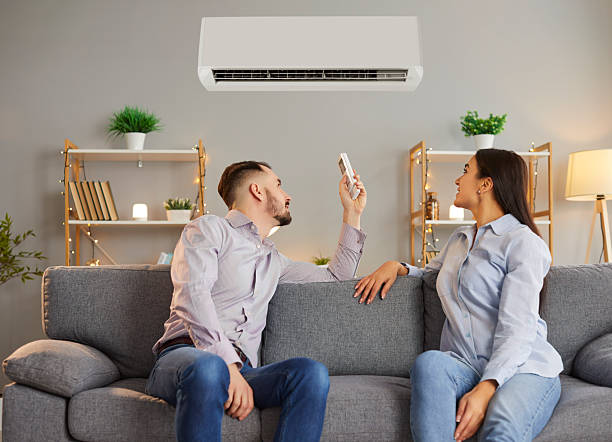Common AC Problems: Your Complete Guide to Fixing Air Conditioning Issues
Is your air conditioner refusing to blow cold air when you need it most? You’re not alone. Millions of homeowners face ac problems every summer, and understanding these issues can save you time, money, and frustration. Whether your ac system is making strange noises, leaking water, or simply not cooling properly, this comprehensive guide will help you identify and resolve the most common air conditioning problems before they turn into costly repairs.
From refrigerant leaks to dirty air filters, we’ll explore everything you need to know about ac issues and their solutions. By the end of this article, you’ll have the knowledge to diagnose problems, perform simple fixes, and know exactly when to call in professionals for residential HVAC services.
Understanding Why Air Conditioners Fail to Blow Cold Air
One of the most frustrating ac problems homeowners encounter is when their air conditioner runs but fails to produce cold air. This issue typically stems from several underlying causes that affect your ac unit’s ability to cool your home effectively.
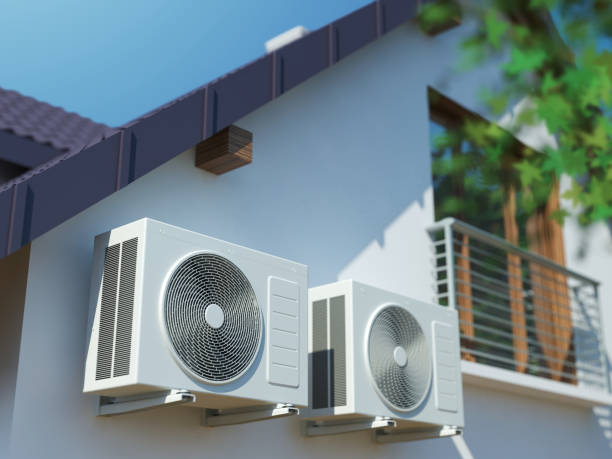
Common causes of no cold air:
- Dirty Air Filter: A clogged air filter restricts airflow, forcing your ac system to work harder while delivering less cool air. This reduces efficiency and increases energy consumption
- Low Refrigerant Levels: Your ac unit relies on refrigerant to absorb heat and transfer it outside. Refrigerant leaks significantly diminish cooling capacity and require professional repair
- Thermostat Issues: Incorrect thermostat settings or exposure to direct sunlight causes false temperature readings, preventing proper cooling
- Thermostat Sensor Problems: A malfunctioning thermostat sensor can prevent your condenser unit from activating, leaving you with warm air instead of comfort
Addressing Refrigerant Leaks and Low Refrigerant Levels
Refrigerant leaks rank among the most serious common ac issues that require immediate professional attention. When your air conditioner loses refrigerant, it cannot effectively transfer heat, resulting in poor cooling performance and potentially causing compressor damage if left unaddressed.
Signs of Refrigerant Problems
| Warning Sign | What It Means | Action Required |
| Ice on condenser coils or lines | Refrigerant flowing improperly | Professional inspection needed |
| AC runs constantly without cooling | Low refrigerant levels reducing capacity | Check for leaks and recharge |
| Hissing sounds near outdoor unit | Active refrigerant leak | Immediate professional repair |
| Higher energy bills | System working harder due to low refrigerant | Schedule maintenance check |
| Warm air from supply vents | Insufficient refrigerant for heat transfer | Professional diagnosis required |
Professional HVAC technicians use specialized equipment to identify leak locations, which commonly occur at connection points, valve stems, or along refrigerant lines damaged by corrosion. Once detected, these leaks must be properly sealed before adding more refrigerant to restore optimal refrigerant levels.
Many older ac units still use R-22 (Freon), which has been phased out due to environmental concerns. If your system uses this older refrigerant and experiences frequent leaks, consider learning when to replace HVAC equipment for a more efficient, environmentally-friendly model through commercial HVAC service providers.
Troubleshooting Circuit Breaker and Electrical Problems
Electrical problems represent another category of common air conditioning problems that prevent air conditioners from functioning properly. When your ac won’t turn on at all, the circuit breaker should be your first checkpoint before assuming major component failure.
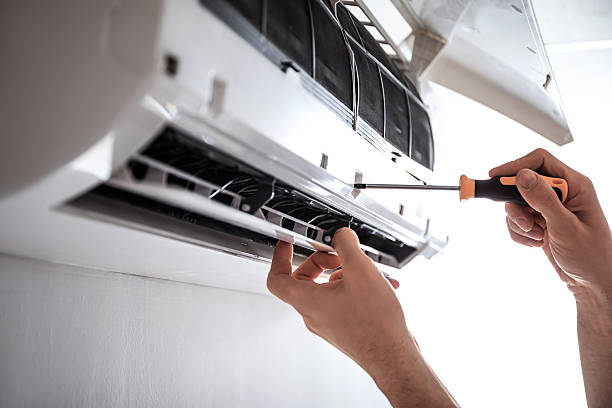
Key electrical issues to check:
- Tripped Circuit Breaker: Often indicates your ac system drew excessive power. Reset the breaker, but if circuit breakers trip repeatedly, call a professional
- Blown Fuse: A single failed fuse can disable critical functions in your ac unit
- Electric Control Failure: Worn contactors prevent your compressor from starting even when the indoor fan operates
- Failed Capacitors: These provide the initial surge to start motors. Age, heat, or power surges cause failure
- Loose Electrical Connections: Vibration and thermal cycles loosen connections over time, generating heat and causing failures
Never attempt to diagnose or repair electrical problems in your ac unit without proper training and equipment. According to the National Electrical Code standards, all electrical work on HVAC equipment must meet specific safety requirements. Professional HVAC technicians have the expertise and tools to handle these ac issues safely through AC maintenance services.
Dealing with Poor Airflow and Dirty Filters
Low airflow from your supply vents ranks among the most common issues that diminish comfort and efficiency in your home. Understanding what is air conditioning and how airflow affects performance helps you identify problems early. A dirty filter accumulates dust, dirt, pet dander, and other particles that block air passage. Most manufacturers recommend replacing standard filters monthly during peak usage seasons.
Beyond dirty filters, blocked or closed vents throughout your house significantly impact airflow distribution. This creates poor ventilation that forces your ac to work harder while cooling inefficiently. Furniture or curtains covering supply vents and closing too many vents in unused rooms creates pressure imbalances that strain your system.
Leaky ducts present a hidden airflow problem. According to ACHR News reporting on DOE research, approximately 30-40% of air traveling through ducts leaks out in typical homes. These losses force your air conditioner to run longer cycles, increasing wear on components.
The condenser coils in your outdoor unit also affect airflow and performance. When these coils accumulate dirt, leaves, and debris, heat transfer efficiency declines dramatically. Compressor issues can also manifest as low airflow problems, requiring professional central air conditioner repair and often representing significant repair expenses.
Identifying and Resolving Water Leaking Issues
Water leaking from your air conditioner can cause property damage and indicates underlying ac problems. During normal operation, moisture condenses on the cold evaporator coil, drips into a drain line, and flows safely away from your ac unit.
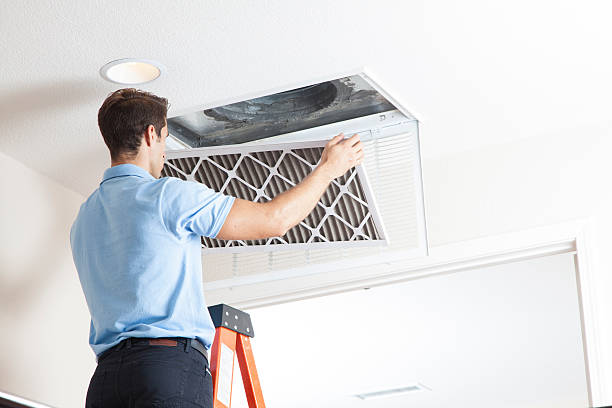
A clogged drain line is the most common problems causing water leaking. Algae, mold, and dirt accumulate inside the drain pipe, creating blockages. Homeowners can prevent clogs by periodically flushing the drain line with a bleach and water mixture. Your ac must be mounted level for proper drainage—especially critical for window units. Frozen evaporator coils can also cause water leaking when they thaw due to restricted airflow or low refrigerant.
Recognizing Strange Noises and Burning Smell Warnings
Unusual sounds and odors from your air conditioner provide early warnings of developing ac issues. A burning smell demands immediate attention—this indicates overheating electrical components or seized motors. Turn off your air conditioner immediately using the thermostat and switch off the dedicated circuit breaker for safety.
Grinding noises suggest mechanical wear in motor bearings or fan assemblies. Rattling indicates loose hardware or debris inside the condenser unit. Repeated clicking suggests failing electrical components. Hissing sounds frequently signal refrigerant leak situations requiring immediate professional attention.
Understanding Common AC Issues with Thermostat Settings
Your thermostat serves as the command center for your air conditioning system. Incorrect thermostat settings cause many service calls. Ensure your thermostat is set to “cooling” mode and verify the target temperature sits below the current room temperature.
A misaligned thermostat sensor provides false readings, causing improper ac cycling. Direct sunlight on your thermostat creates artificially high temperature readings. Replace thermostat batteries annually and clean dust from inside the housing to maintain proper sensor function.
When to Call Professional HVAC Services for AC Problems
Understanding when to tackle ac problems yourself versus calling professionals saves time, money, and prevents safety risks. Refrigerant handling requires professional service—federal regulations prohibit uncertified individuals from purchasing refrigerant or servicing sealed system components.
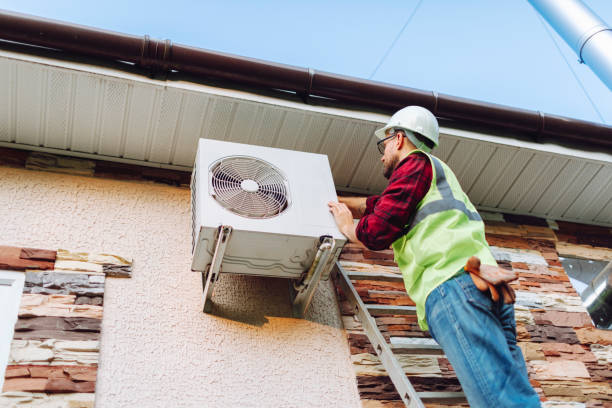
Electrical problems beyond resetting circuit breakers require licensed professionals due to serious injury risks. Compressor failures necessitate professional evaluation. Strange noises, especially grinding sounds, indicate mechanical problems requiring proper diagnostic tools and expertise to resolve safely.
In Summary
Understanding ac problems empowers you to maintain comfort in your home while avoiding unnecessary service costs. From simple solutions like replacing dirty air filters to recognizing when professional help is needed for refrigerant leaks or electrical problems, this knowledge helps you respond appropriately to common air conditioning problems.
Regular maintenance and staying vigilant for warning signs—unusual noises, burning smell, reduced cooling performance, or water leaking—allows you to address issues promptly when repair costs remain reasonable. While many ac issues have straightforward solutions, others require specialized expertise to diagnose and fix safely.
If you’re considering upgrading your system, research the best central AC brands to ensure you choose a reliable, efficient unit that meets your cooling needs. Don’t let ac problems compromise your comfort or safety this summer. If you’re experiencing any of the issues discussed in this guide, the experienced technicians at Callidus Air are ready to help. Contact us today to schedule a comprehensive inspection or discuss your air conditioning concerns with our knowledgeable team.
Frequently Asked Questions About AC Problems
Why is my air conditioner not blowing cold air?
When your ac isn’t blowing cold air, the problem typically stems from dirty filters restricting airflow, low refrigerant levels due to leaks, or incorrect thermostat settings. Start by replacing your air filter and checking your thermostat settings. If these simple fixes don’t restore cooling, you need professional service to check refrigerant levels and inspect components.
How often should I replace my air filter?
Replace standard air filters every 30 days during peak cooling season when your ac runs frequently. Homes with pets, allergies, or high dust levels may require more frequent replacement—potentially every 2-3 weeks. High-efficiency filters or whole-house air cleaners may last 3-6 months depending on the type and your home’s conditions. Check filters monthly and replace when visibly dirty regardless of elapsed time.
What causes water to leak from my AC unit?
Water leaking from your air conditioner usually indicates a clogged condensate drain line. Other causes include incorrect installation angles for window units, frozen evaporator coils that thaw, or cracked drain pans. While you can clear minor drain line blockages, persistent leaking requires professional diagnosis to prevent property damage.
Is it normal for my AC to run constantly on hot days?
While your ac will run more frequently during extreme heat, it should still cycle off periodically. Constant operation without cycling suggests problems like undersized equipment, low refrigerant, dirty filters or coils, thermostat malfunctions, or leaky ducts. Professional evaluation determines whether constant operation indicates problems requiring attention.
How can I tell if my AC has a refrigerant leak?
Refrigerant leak indicators include ice formation on refrigerant lines or condenser coils, hissing sounds near the outdoor unit, declining cooling performance, and your ac running constantly without reaching set temperature. You might notice higher energy bills as your system struggles to compensate for low refrigerant levels. Federal regulations require certified professionals to handle all refrigerant service, testing, and recovery.

